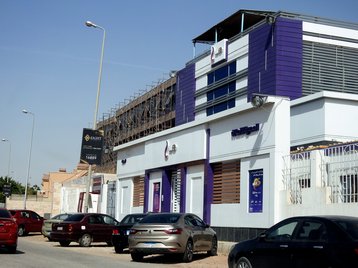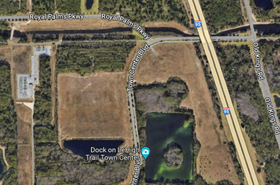Telecom Egypt and 4iG have signed a Memorandum of Understanding (MoU) to construct a subsea cable connecting Egypt and Albania.
The MoU will see a high-capacity subsea cable with an open-access model and multiple branching units developed. The agreement was signed by Mohamed Nasr, managing director and CEO of Telecom Egypt, and Gellért Jászai, chairman of the Board of Directors at 4iG Plc.
“We are pleased to cooperate with 4iG to set the ground for adding a brand new diverse entry point to Europe in Albania, facilitating the routing of the African and Asian traffic to the main Points of Presence in Central and Eastern Europe," said Nasr.
"This goes in line with Telecom Egypt’s strategy to diversify the Mediterranean basin crossing options for our partners via multiple, high-capacity subsea cables linking Egypt and Europe. The planned cable will leverage the newly-launched open and neutral ecosystem 'WeConnect' to enable its direct cross-connection with numerous subsea systems in Egypt.“
According to Dr Amr Talaat, Egypt's Minister of Communications and Information Technology, Egypt is keen to expand its international digital infrastructure. "We already have 14 cables, and work is underway to establish five new ones through international alliances with prominent industry players," he added.
Just two subsea cables currently land in Albania, both to the port city of Durres. The Adria-1, deployed in 1996 by ALBtelecom and Hrvatski Telekom, connects to Greece and Croatia. The Italy-Albania cable, deployed in 1997 by ALBtelecom and TIM's subsidiary Sparkl, connects to Bari in Italy.
Hungary-based 4iG is an IT services firm. The company moved into Albanian telecoms in 2021 after it acquired the formerly state-owned ALBtelecom from Calik Holding. It then acquired Vodafone's Hungarian operations last year and merged the two units under the ONE Albania brand.
Telecom Egypt has also recently signed a second MoU, this time with the Medusa Submarine Cable System which will see the subsea cable extend to the Red Sea.
Medusa is expected to land in Egypt's Port Said by the end of 2025, at which point it will then be connected to the Red Sea landing stations of Suez, Zafarana, and Ras Ghareb via Telecom Egypt's terrestrial network.
"This new agreement provides additional connectivity solutions and increases diversity in the submarine cable infrastructure reaching the Red Sea, marking a significant milestone in the industry," said Telecom Egypt's Nasr.
"Egypt’s unique position between Europe, Asia, and Africa, complemented with Telecom Egypt’s diligent efforts and extensive expertise in the subsea cable landscape, promote the company’s position as a go-to global digital hub and enable it to attract and collaborate with mega industry players.”
Telecom Egypt first agreed with AFR-IX Telecom to land the Medusa cable at Port Said in March 2022. Medusa will connect ten countries in total including Portugal, Morocco, Spain, France, Algeria, Tunisia, Italy, Greece, Cyprus, and Egypt. The cable, which will have 24 fiber pairs capable of transmitting 20Tbps per fiber pair, is expected to begin operations in 2025.
Egypt has long been a key location for submarine cables. Much of the world's data that travels to and from Europe and Asia, as well as Northern Africa and the Middle East, goes through Egypt, putting around 17 percent of the world's Internet traffic in the hands of the country. Telecom Egypt has faced some criticism for the high charges given to submarine cable operators.
Telkom Indonesia's Patara-2 cable system goes live
In other cable news, the Telkom Indonesia-owned Patara-2 is now operational.
Patara-2, supplied by cable provider NEC, is a 100Gbps cable with two fiber pairs. It spans approximately 1,200 kilometers and connects several islands across the Indonesian archipelago.
The latest cable is an addition to the existing Sulawesi Maluku Papua Cable System (SMPCS), bringing better connectivity to the cities of Waisai, Manokwari, and Supiori.
"Both the Patara-2 and SMPCS cable systems enable the network in the north of Papua to have a redundant configuration, providing highly reliable communications in Papua," said Herlan Wijanarko, director of Network & IT Solutions, Telkom.




